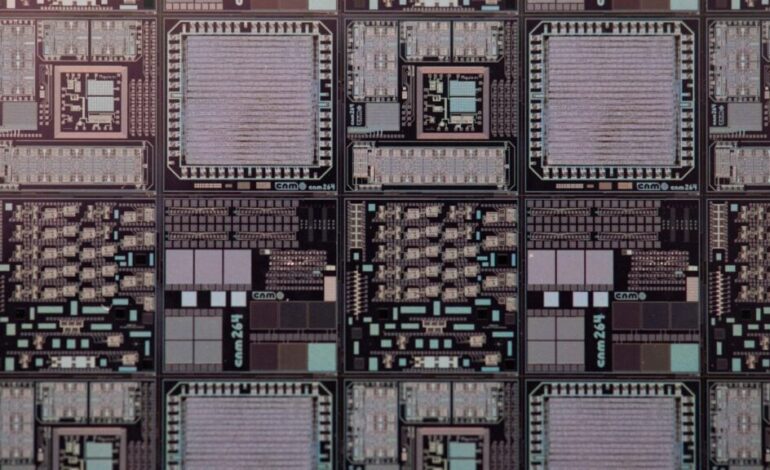Chip Startup Substrate Raises $100 Million to Transform Industry

A new player in the semiconductor sector, Substrate, has announced it secured $100 million in funding, with backing from prominent investors including Peter Thiel and the CIA-supported In-Q-Tel. The company aims to revolutionize the chip manufacturing process by vertically integrating operations, which could significantly change the landscape of the industry.
Based in the United States, Substrate’s funding round includes investments from major venture capital firms like Thiel’s Founders Fund, General Catalyst, and MITIMco, linked to the Massachusetts Institute of Technology. This infusion of capital is intended to support Substrate’s ambitious goal of regaining U.S. dominance in semiconductor production, an area currently reliant on a complex global supply chain, particularly in Asia.
Ambitious Plans for Vertical Integration
Substrate’s strategy focuses on owning the entire manufacturing process of semiconductors. According to a report by The Wall Street Journal, the company seeks to streamline production and reduce dependency on external suppliers. This approach comes amid ongoing discussions about reshoring chip production within the United States, particularly in light of political instability in Asia.
Yet, industry experts have expressed skepticism regarding the feasibility of such a vertically integrated model. The Journal highlighted that seasoned professionals in the semiconductor field view this strategy as unsustainable. Co-founder James Proud, who has been described as a protégé of Thiel, acknowledges the challenges ahead. He stated, “If I had come from the existing industry, I probably wouldn’t believe it’s possible because I’d probably know too much about how hard it’s going to be, and it was and it has been immensely hard.”
Proud’s vision includes the establishment of next-generation semiconductor fabrication facilities (fabs) that would utilize advanced technologies such as a new form of X-ray lithography. The company’s website articulates its mission in existential terms, emphasizing that creating a new type of vertically integrated foundry is critical for the United States to regain its position in semiconductor production.
Technological Innovations and Political Support
One of the key innovations Substrate is pursuing involves a more compact machine that employs ultrashort-wavelength laser light to etch intricate patterns on silicon wafers. This technology could enhance the efficiency and precision of chip manufacturing, potentially pushing the boundaries of what is achievable under Moore’s Law, which predicts a doubling of transistors on a chip approximately every two years.
Substrate has also garnered attention from the Trump administration, which has expressed a desire to bolster domestic chip production. The current political climate surrounding the AI industry underscores the importance of robust manufacturing capabilities, as the infrastructure needed to support AI technologies becomes increasingly critical.
As Substrate attempts to navigate the complexities of the semiconductor landscape, its journey will likely be closely monitored by both investors and industry veterans. The challenges of vertical integration in a sector marked by rapid technological advancements and geopolitical factors remain significant. However, with substantial financial backing and a clear mission, Substrate could emerge as a pivotal force in reshaping the future of semiconductor manufacturing.






